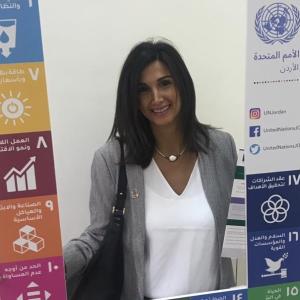FAO Regional Ministerial Conference for the NENA region concludes with a Ministerial Declaration
06 March 2024
Delegates reiterated their support for the FAO Strategic Framework 2022–31, which calls for the transformation to more efficient, more inclusive, more resilient, and more sustainable global agrifood systems to assure the “Four Betters”.
The 37th session of the Regional Ministerial Conference for the Near East and North Africa (NENA) of the Food and Agriculture Organization of the United Nations (FAO) ended today with a Ministerial Declaration supporting the FAO Strategic Framework 2022-31, supported by the Organization’s flagship initiatives, and calling for a ceasefire in Gaza.
The Ministerial Declaration was agreed by Members of the NENA region at the end of a two-day high-level gathering in Amman.
Delegates reiterated their support for the FAO Strategic Framework 2022–31, which calls for the transformation to more efficient, more inclusive, more resilient, and more sustainable global agrifood systems to assure the “Four Betters”: better production, better nutrition, a better environment, and a better life, leaving no one behind. The FAO Strategic Framework supports Members in achieving the 2030 Agenda for Sustainable Development and the Sustainable Development Goals (SDGs).
The high-level participants also endorsed the four Regional Priorities for FAO’s programme of work as set out in its Strategic Framework for the next decade, and which reflect strategic areas to support countries in the region in transforming their agrifood systems.
The Ministers also reiterated their support for FAO’s flagship initiatives, including the One Country One Priority Product, Hand-in-Hand, and 1000 Digital Villages, and committed to support their implementation in their countries in line with national priorities.
Gaza
Ministers and Heads of Delegation of the region also called for a ceasefire in Gaza and an end to “all forms of violence.”
The Declaration expresses “deep concern about the deteriorating security situation in the region and the resulting food security and nutrition crisis, particularly in Gaza, Sudan, Yemen and the Syrian Arab Republic.”
On Gaza specifically, it expresses extreme concern with the “deteriorating humanitarian situation, the forced displacement of the population in the Gaza Strip, the destruction of the agriculture sector and related livelihoods and infrastructure resulting in severe food insecurity leading towards famine.”
Ministers also expressed solidarity with those facing the “devastating situation due to the war in Gaza and conflicts in other member countries” and emphasized “the importance of promoting peace in the region.”
In his closing remarks to the conference, FAO Director-General QU Dongyu said: “I wish to convey my deepest sympathies for the ongoing suffering in Gaza, Sudan and Yemen, and other hotspots in the region, due to the impacts of war and conflicts, and other global crises.”
“Let me assure you of FAO’s continued support to these communities, in line with our mandate and resources framework. I continue to stress that peace is a prerequisite for food security,” the Director-General added.
Already in November, Qu had called for an immediate humanitarian ceasefire in Gaza to ease civilian suffering and to facilitate the delivery of urgent assistance.
The Ministerial Declaration was adopted against the backdrop of the increasingly worrying situation in Gaza, where the population is experiencing catastrophic levels of conflict-induced food insecurity and a high risk of famine.
According to the latest Integrated Food Security Phase Classification (IPC) analysis, the entire population of about 2.2 million people in the Gaza Strip is estimated to be in Crisis or worse (IPC Phase 3 and above), the highest percentage of people experiencing such acute food insecurity that the IPC has ever classified for any given area or country.
About 50 percent of the population is projected to be in Emergency (IPC Phase 4) and at least one in four households (more than half a million people) conservatively assessed to now be in Catastrophic or famine-like conditions (IPC Phase 5).
FAO is already playing a crucial role in Gaza, particularly in terms of providing emergency relief and participating in rebuilding efforts. FAO is part of the joint UN flash appeal and is closely coordinating with the wider UN family and partners in responding most appropriately and effectively, in line with its mandate.
FAO has also issued a call for $20 million in the Nov 2023 UN Interagency Flash Appeal and plans to reactivate the production of perishable, highly nutritious food that cannot be imported as food aid, including fresh milk, meat, and vegetables.





